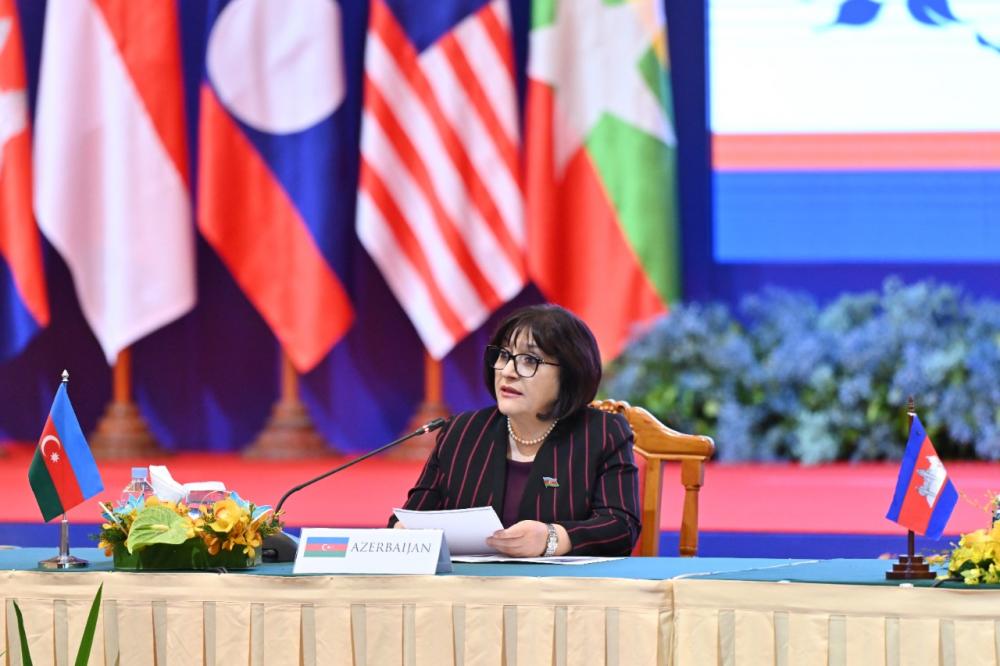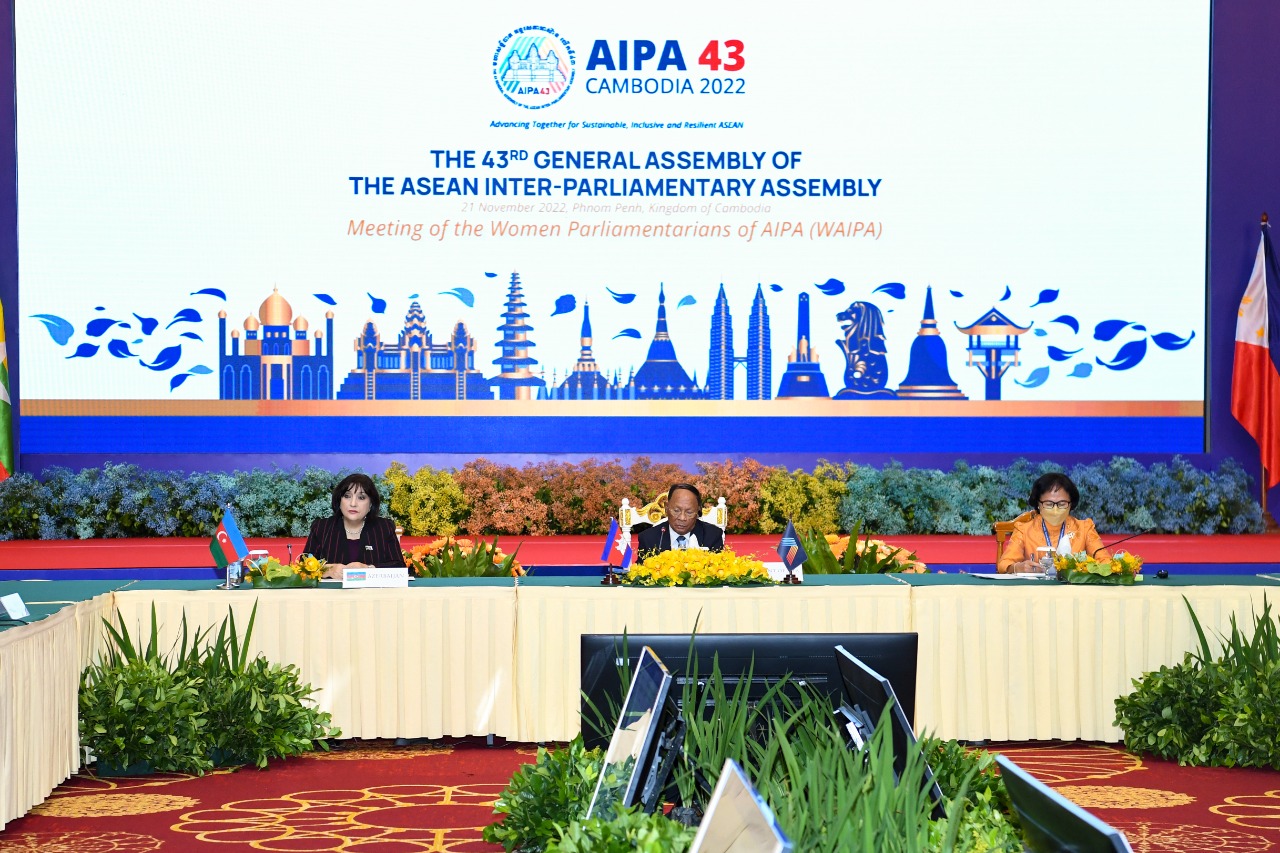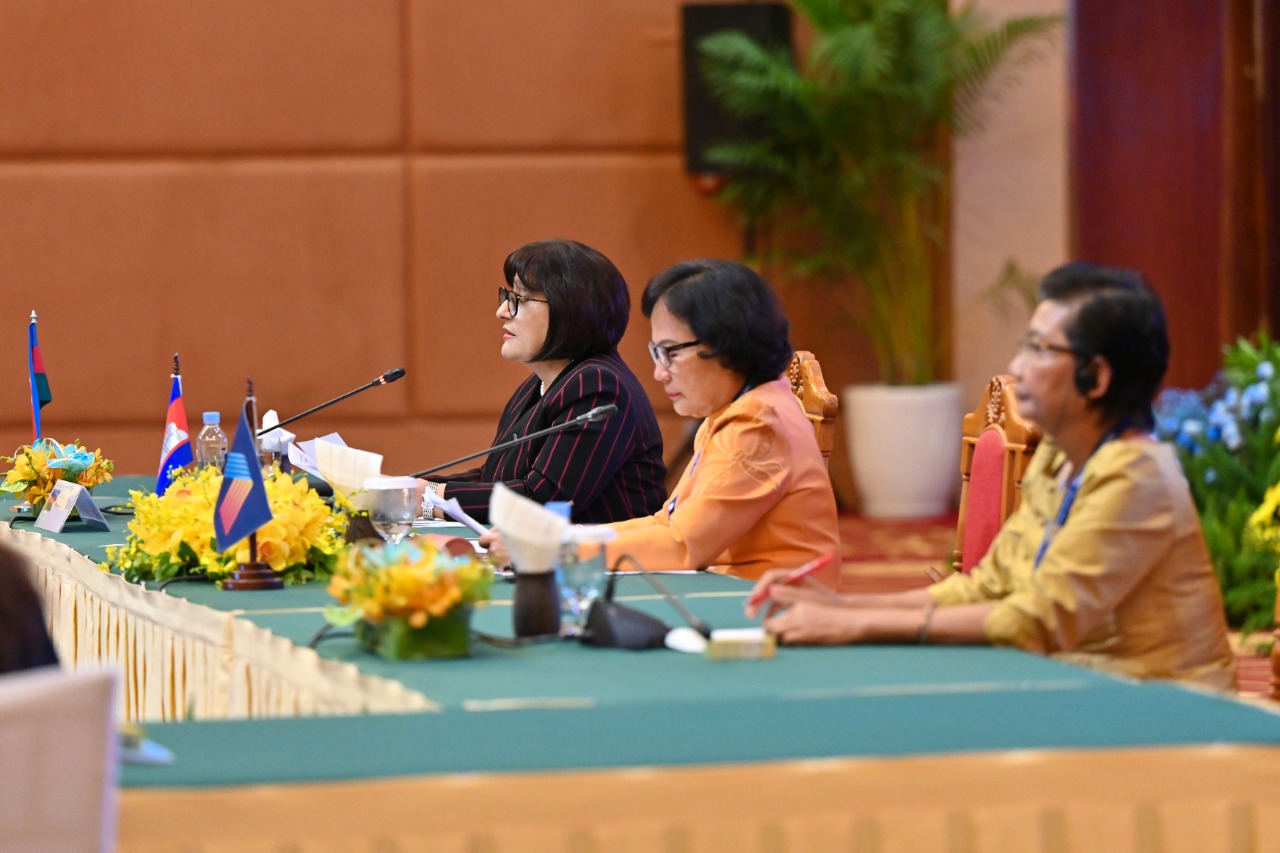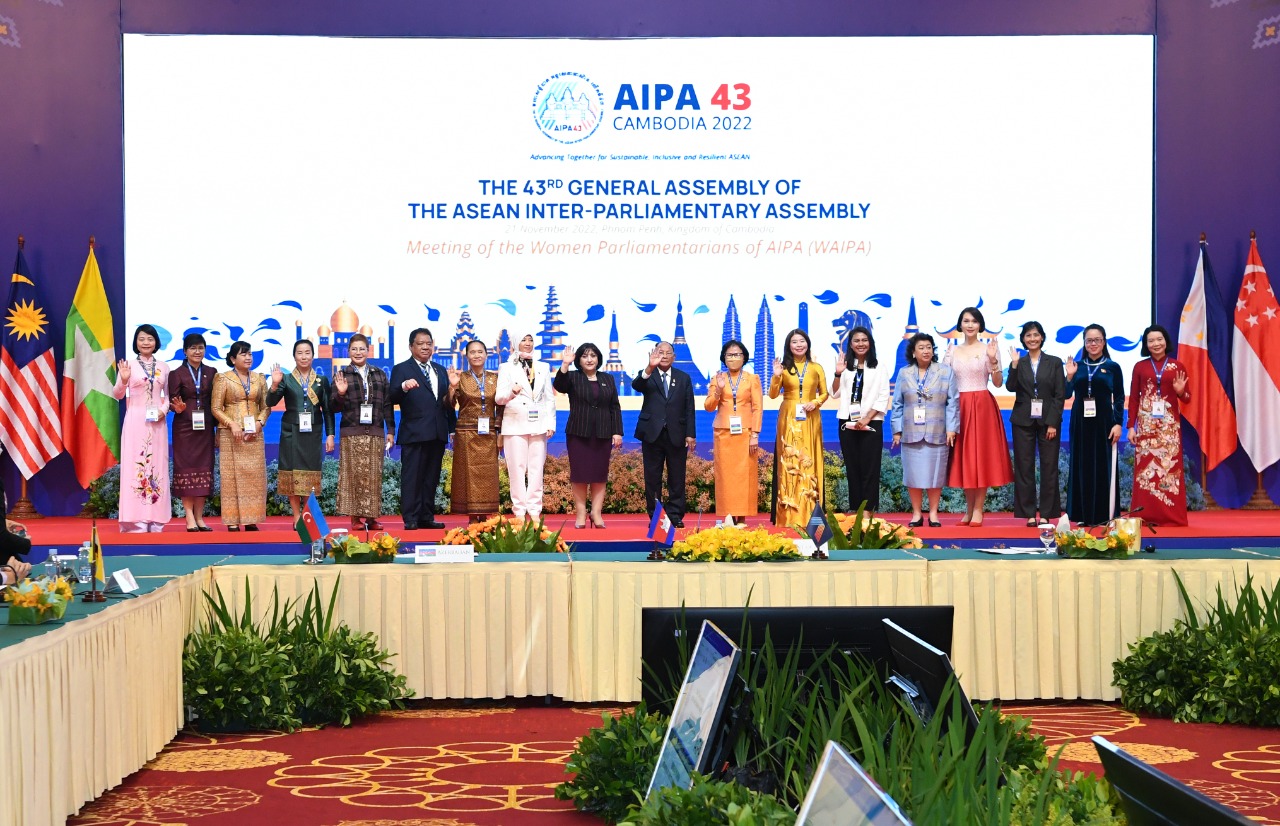Milli Majlis Chair Sahiba Gafarova Speaks at WAIPA Meeting

Chair of the Milli Majlis Sahiba Gafarova who is in Cambodia on an official visit took part in the meeting of the meeting of the Women Parliamentarians of the AIPA (ASEAN Inter-Parliamentary Assembly) and delivered a speech at it on 21 November.
After greeting the participants, Sahiba Gafarova told them that it was her pleasure to attend this meeting and deliver my speech and that it is always gratifying to meet women parliamentarians representing different countries and organisations, discuss and share perspectives on the issues that demand joint efforts and collective responses.
As she talked about the negative impacts of COVID-19, including, it having hampered solution of gender-equality problems and granting women greater rights and opportunities, Mrs Gafarova emphasised that that was precisely why in a post-pandemic recovery period we should preserve the achievements gained already without repeating previous mistakes.
It is impossible to imagine a strong, stable society without the participation of women in all the walks of public life, in the opinion of the Azerbaijani parliament’s leader. She then said it was her strong belief that one of the root causes of gender-related problems, especially, inequality in employment lay in education. The focus of the creation of an inclusive society putting gender equality at its core should be on strengthening education and ensuring equal opportunities in it. This will doubtless eliminate barriers to the empowerment of women in politics, the economy and other fields.
Parliaments reflect demands and changing dynamics of society, Mrs Gafarova continued. We, women parliamentarians, as elected representatives of our people, have a lot to say and to do in achieving gender equality in post-pandemic period. These include making our parliaments more gender-sensitive in terms of representation and management, enacting new laws that promote and protect gender equality and overviewing their enforcement.
Evidently, gender equality and women’s empowerment have become an integral part of the international political and development agenda. This is an essential factor on the way to a better world based on equal rights and equal opportunities. Solidarity, co-operation and co-ordination, and not only domestically but also global ones, will make it possible to achieve better results in the context of individual countries as well as at the international level. The platforms like the one today matter very much in this sense as they make it possible to define goals, in the opinion of Sahiba Gafarova.
Giving women the right to vote in 1918, ahead of most European countries, Azerbaijan then proceeded to make considerable progress in ensuring gender equality and women empowerment. The establishment of a state committee on family, women’s and children’s affairs and of a specialist parliamentary committee for family, women’s and children’s issues came as a crucial decision inasmuch as adoption of a systemic and well-structured approach to the problem and ensuring government-parliament co-operation were concerned.
Sahiba Gafarova told her audience about the optimisation of the Azerbaijani legislation concerning gender equality and women’s rights and about also the implementation of pertaining state programmes. A special stress is placed here on interacting with international organisations. The UN-Azerbaijan sustainable development frameworks programme for 2021-2025 signed in March 2021 defines gender equality matters as priority partnership areas, amongst all the others, for one.
The growing role of women in general and of women parliamentarians in particular, for instance, in working on the agenda for attainment of sustainable international peace and security was brought up as well.
The United Nations Security Council Resolution number 1325 is a substantial framework that addresses the impact of war on women and their role in conflict prevention, conflict management and sustainable peace efforts. Draft National Action Plan for implementation of this resolution is being prepared in Azerbaijan, Mrs Gafarova told the listeners.
Twenty per cent off the territory of Azerbaijan that is recognised as such internationally remained captured by the neighbouring Armenia for three decades. All our cities and villages, historical, cultural and religious sites were destroyed in these territories. About 1 million compatriots, 52 per cent of them women, became refugees and displaced persons. Azerbaijan started large-scale restoration and re-construction works in these territories after liberating her territories from the Armenian occupation in 2020. The first families of former IDP’s have already begun to travel back to their homes. However, the large number of mines planted by Armenia in those lands set a serious impediment to the process. Approximately 270 Azerbaijanis have been either killed or injured gravely in mine explosions since the war ended two years ago. The lives of our erstwhile displaced persons, including of women and children, are in serious danger now that they have returned to their homelands. The mine problem is a drastic experience for our women as they attempt to resume their normal lives. To Sahiba Gafarova’s mind, the global discourse on women, peace and security should keep this matter, too, in focus and pay close attention to it.
The Press and Public Relations Department
The Milli Majlis






